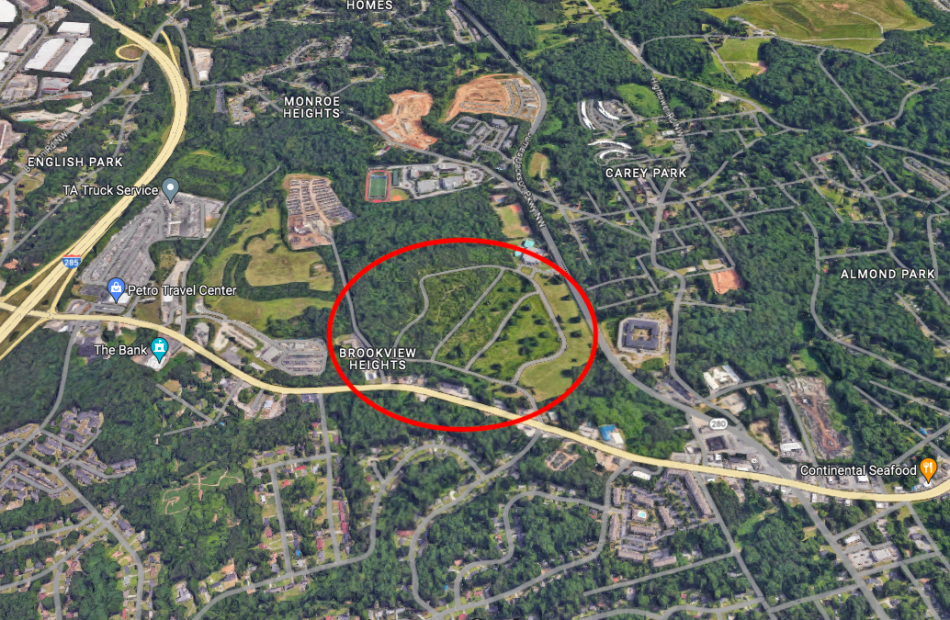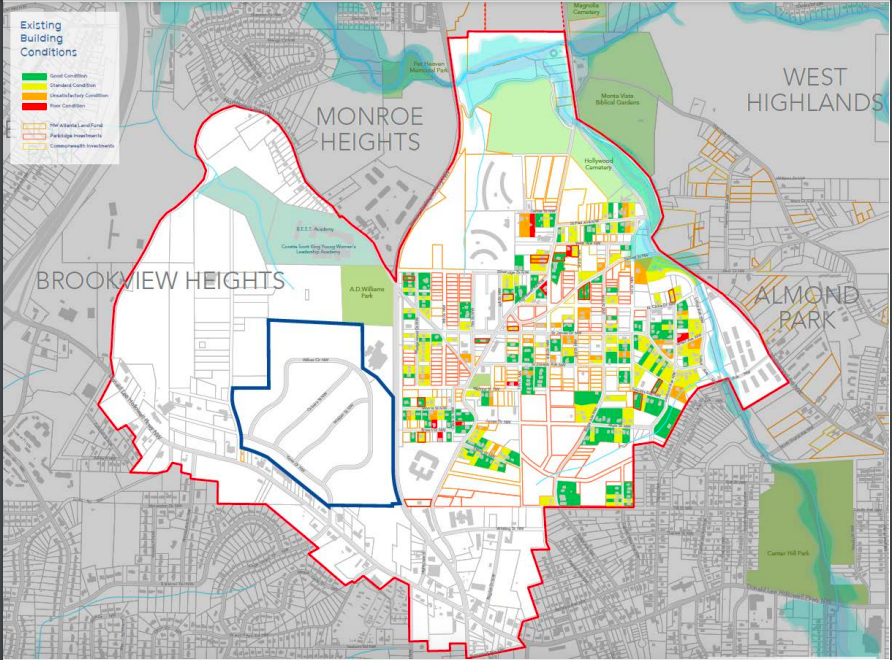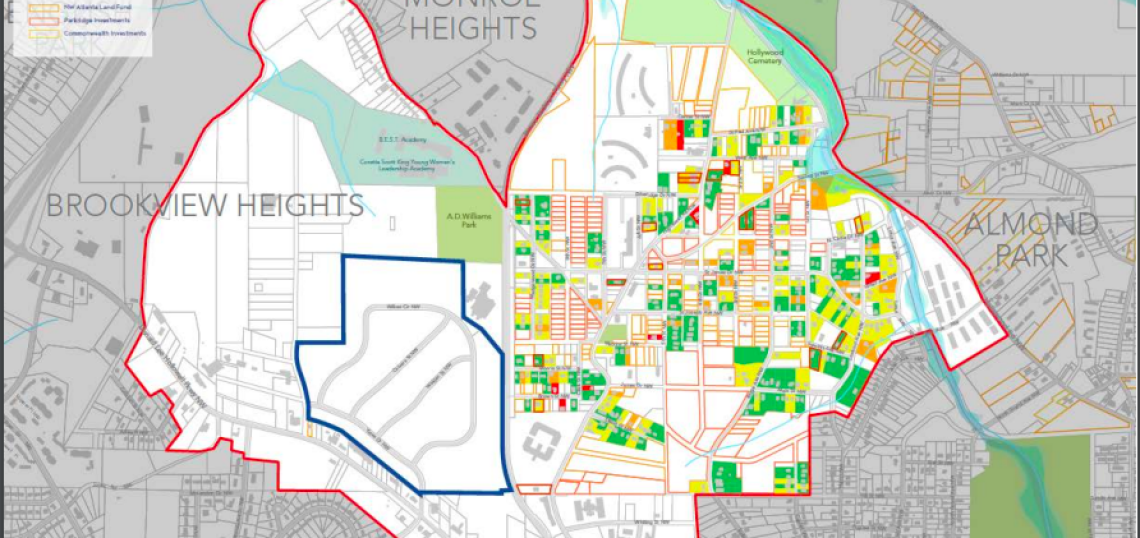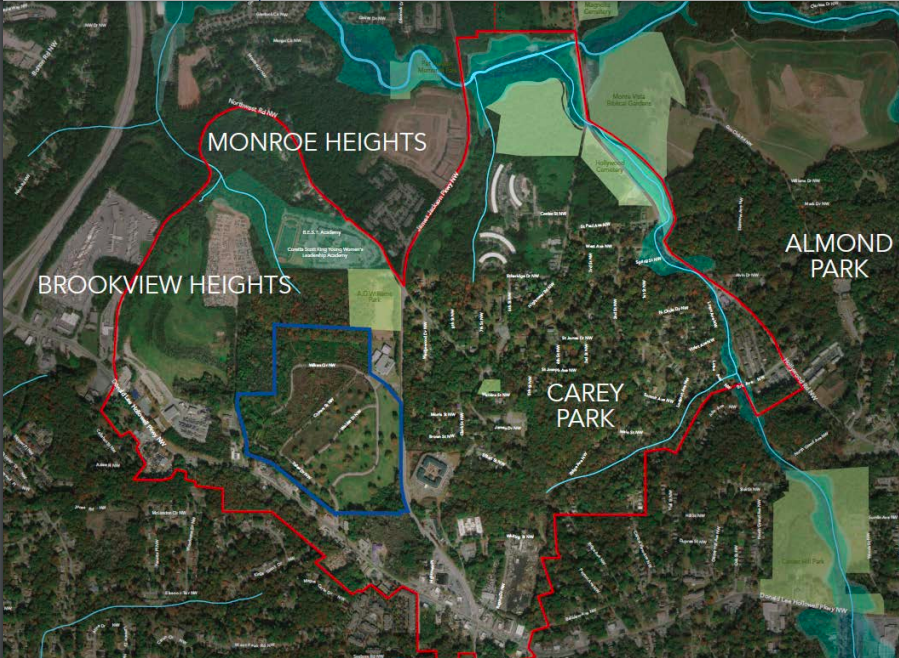In the early 1960s, Bowen Homes was built as a model multifamily community in what was then considered Atlanta’s western suburbs, counting its own library, school, and eventually some 4,000 residents.
By 2008, the 650 apartments spread across 102 buildings had devolved into a sore spot of crime and a magnet for the drug trade—typifying the ills of the American public housing experiment. According to Atlanta Housing, Bowen Homes experienced 168 violent crimes in just a six-month period that year, including five murders.
In 2009, bulldozers moved in, and Bowen Homes became the last of Atlanta’s major family housing projects to be razed.
The site has been abandoned ever since. But that could change.
The U.S. Department of Housing and Urban Development this week announced a $40 million federal grant that aims to kickstart Atlanta’s Bowen Choice Neighborhood program, a revitalization effort for the former Bowen Homes and surrounding Westside properties.
The 74 acres in question are located just inside the Interstate 285 Perimeter, near the intersection of James Jackson Parkway and Donald Lee Hollowell Parkway.
 The acreage in question in relation to Interstate 285, at left, and Donald Lee Hollowell Parkway. Google Maps
The acreage in question in relation to Interstate 285, at left, and Donald Lee Hollowell Parkway. Google Maps
The HUD grant aims to help the City of Atlanta transform the bones of Bowen Homes into more than 2,000 housing units for renters and homebuyers.
Other aspects of the redevelopment call for a Community Resources Center and Innovation Hub that will offer Bowen Homes’ residents job-training opportunities and affordable commercial space, according to city officials.
Last fall, Atlanta Housing selected a redevelopment team dubbed Bowen District Developers—led by The Benoit Group and McCormack Baron Salazar real estate companies—to bring the area back to life, as Atlanta Civic Circle relayed.
Backed by U.S. Senators Jon Ossoff and Reverend Raphael Warnock and Congresswoman Nikema Williams (GA-05), Atlanta Housing and officials with Mayor Andre Dickens administration formally applied in January for HUD’s Choice Neighborhoods Implementation Grant.
The project’s scope calls for rebuilding the Bowen Homes site and next-door neighborhood Carey Park, along with a section of Almond Park.
According to an Atlanta Housing presentation compiled in 2021, Bowen Homes’ decline coincided with broader disinvestment in the city’s northwest side, beginning in the late 1960s and ramping up with the scourge of inner-city poverty and crime in the 1970s and ’80s. “This area would eventually become the music industry’s shorthand for troubled neighborhoods plagued by gangs, a common theme of hip-hop artists, several of whom grew up in Bowen Homes,” the presentation notes.
 An Atlanta Housing presentation from 2021 showing the former Bowen Homes site in relation to housing deemed in good condition (green) and poor condition (red), with color-coded variations between. Atlanta Housing
An Atlanta Housing presentation from 2021 showing the former Bowen Homes site in relation to housing deemed in good condition (green) and poor condition (red), with color-coded variations between. Atlanta Housing
Dickens predicted the $40 million HUD grant will be “transformative for Northwest Atlanta, bringing affordable homes and a vibrant neighborhood back to the community,” according to a prepared statement.
Dustin Hillis, an Atlanta City Councilmember whose District 9 covers the area in question, called the grant “the culmination of years of hard work by our Northwest Atlanta community members, business owners, clergy, former Bowen Homes residents, Atlanta Housing, and many others.”
It’s an important step, said Hillis, in reactivating the Donald Lee Hollowell Parkway corridor and surrounding neighborhoods.
...
Follow us on social media:
• Westside news, discussion (Urbanize Atlanta)







